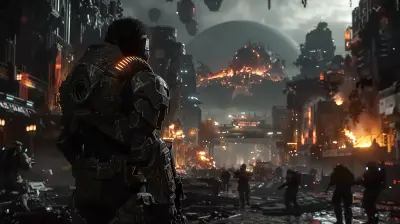The Rise of Non-Combat RPGs: Focus on Story, Choice, and Exploration
3 July 2025
For a long time, the RPG (Role-Playing Game) genre has been dominated by swords, spells, and epic monster-slaying. Think about the classics—Final Fantasy, The Elder Scrolls, or Diablo. What do they all have in common? Combat, and lots of it. For decades, this was the blueprint. But lately, something's shifting in the world of RPGs, and it's reshaping how we think about gameplay.
Non-combat RPGs are on the rise. Yep, you read that right. Role-playing games where you don’t have to fight anything. No grinding, no hit points, no overpowered boss fights. Instead, the focus is on narrative, choices, exploration, and character relationships. And honestly? That’s exciting.
Let’s dive into why this trend is gaining momentum and why more gamers are craving story-driven experiences over traditional combat-centric gameplay.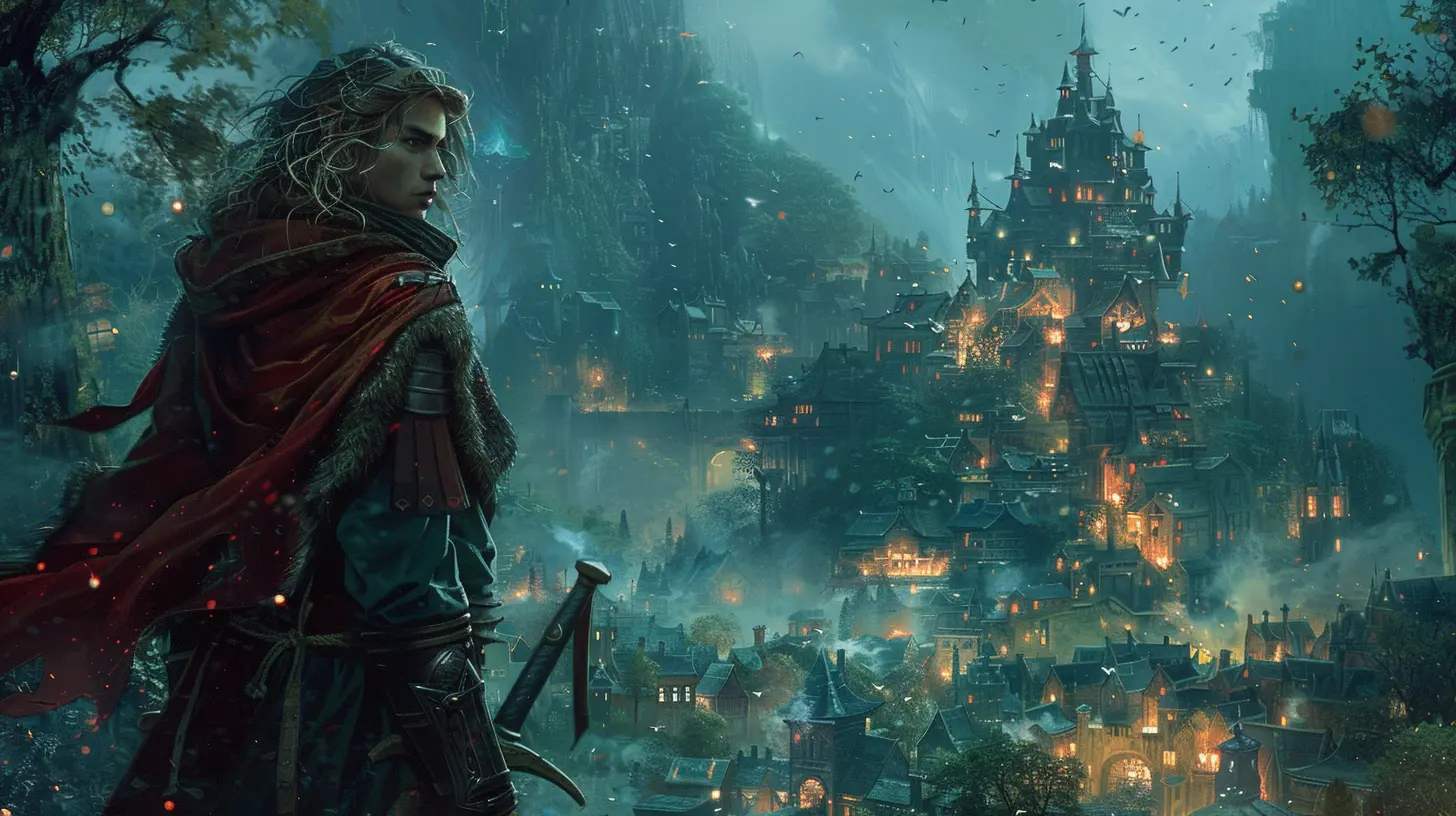
What Are Non-Combat RPGs, Anyway?
Non-combat RPGs ditch the battle mechanics but keep the soul of role-playing. You still make choices, build characters, explore environments, and immerse yourself in another world. But rather than solving problems with a sword or spell, you use dialogue, logic, empathy, or investigation.These games aren't just "walking simulators" either. There's depth, complexity, and real stakes. The difference is, instead of slaying dragons, you're navigating human emotions, moral dilemmas, or ancient mysteries.
Games like Disco Elysium, Citizen Sleeper, and Undertale (well, at least in its pacifist run) show us that compelling RPGs don’t need combat to be thrilling.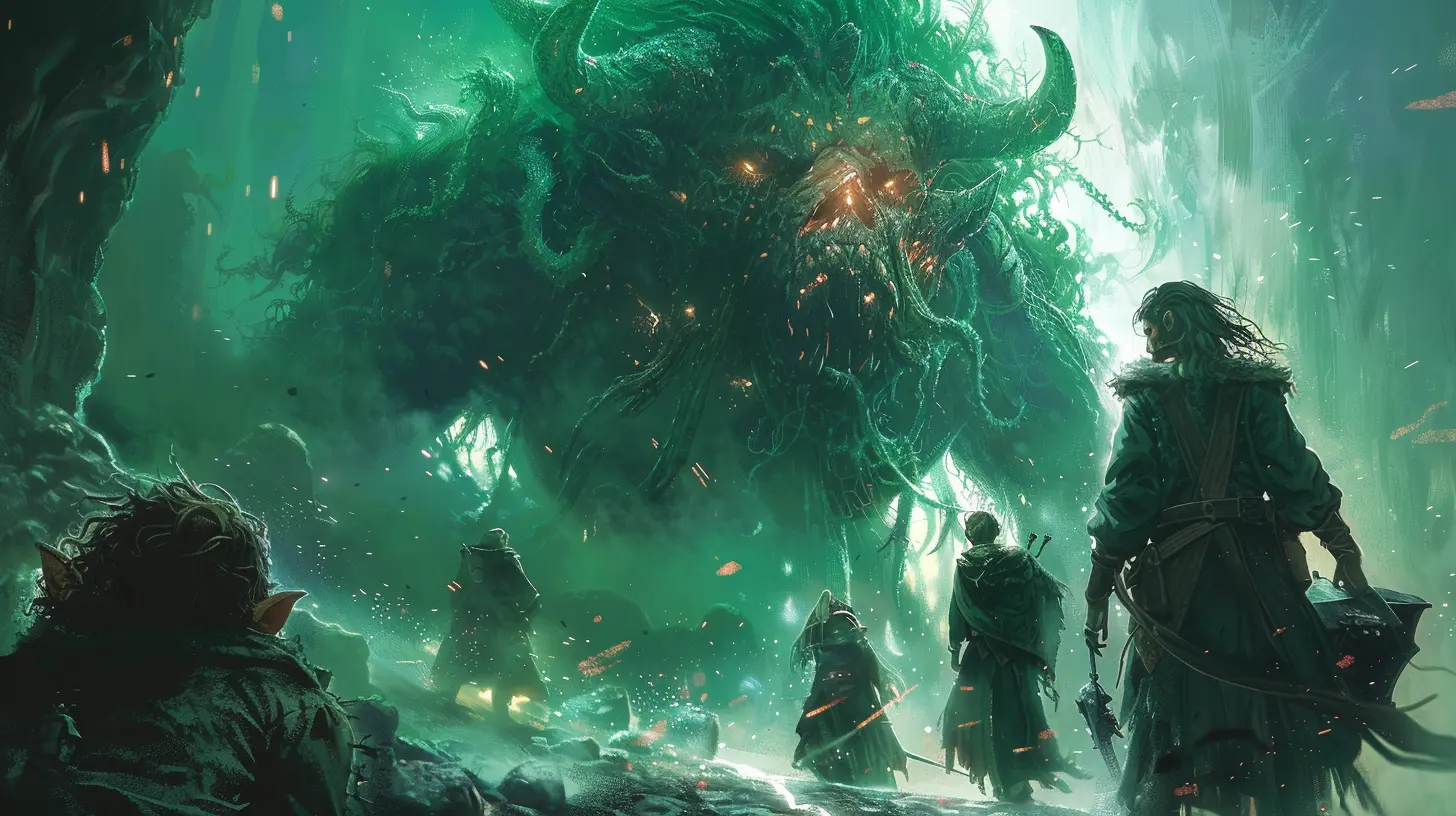
Why Gamers Are Loving Non-Combat RPGs
1. Story Comes First
Let’s face it—nothing beats a great story. It’s the heart of any great RPG. Non-combat RPGs lean all the way into this. They let you sink into a world through dialogue, lore, and exploration, without the distraction of leveling up or loot systems.You’re not trying to “beat” the game in the traditional sense. You’re trying to understand it, to experience it. Players who crave emotional depth, character development, and plot twists are finding gold mines in this genre.
2. Meaningful Choices That Actually Matter
Ever played an RPG where you’re told your choices matter… only to find they really don’t? Yeah, that’s frustrating.Non-combat RPGs often double down on consequences. Your decisions can lead to vastly different story arcs, relationships, endings—even world states. Since the focus isn’t on combat skills, the outcome often depends on how you interact with others or solve problems.
This gives you a stronger sense of agency. You feel like your character actually exists in the world, with their own values and voice, rather than being just a kill machine.
3. Inclusive and Accessible Gameplay
Not every gamer is into intense combat. Some players find real-time battles overwhelming. Others simply prefer logic over reflexes. Non-combat RPGs are opening the door to a broader audience—including people with disabilities, folks who are new to gaming, or those simply looking for a chill experience.These games can be just as intellectually and emotionally engaging—sometimes even more—without the stress of combat mechanics.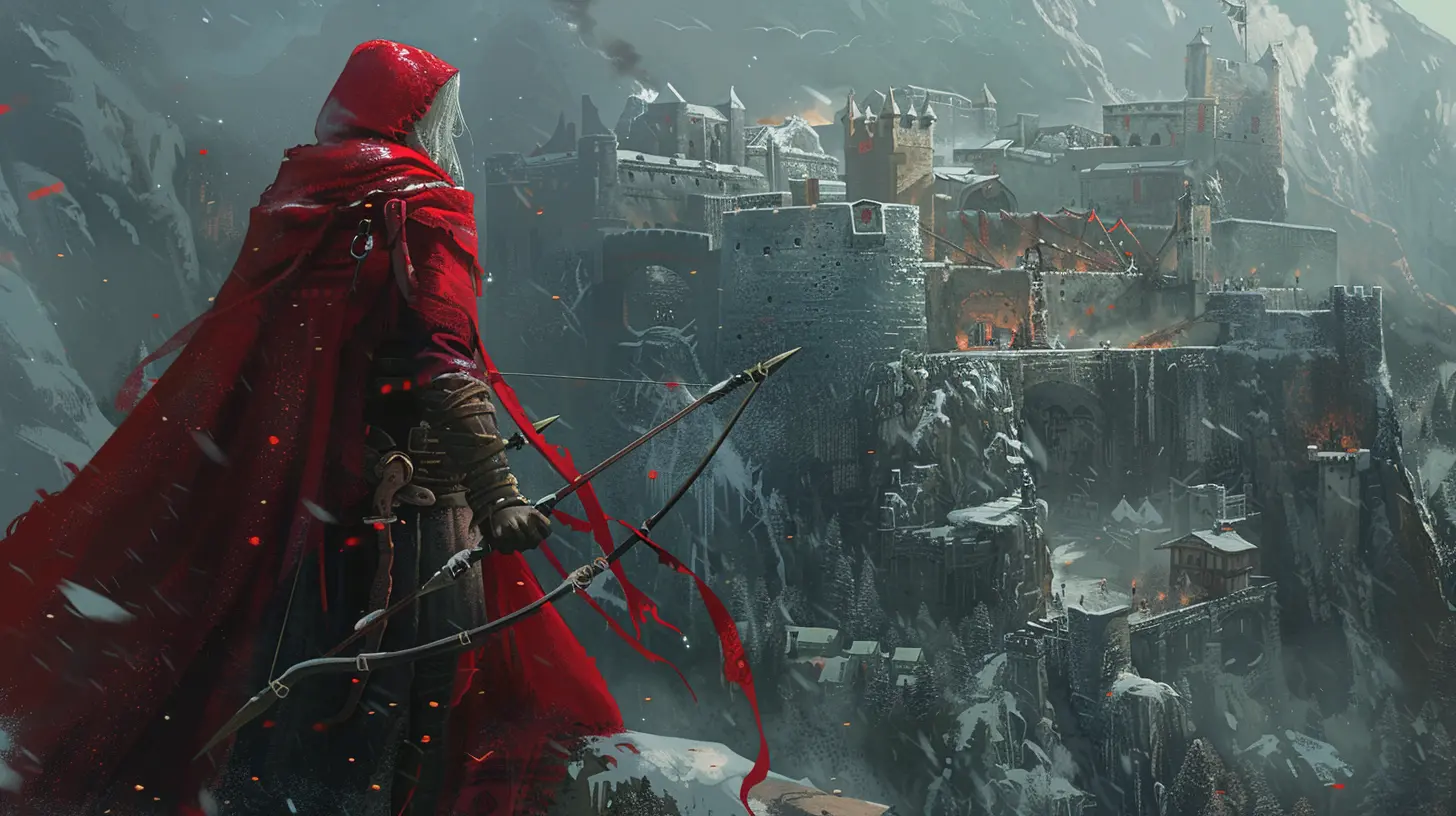
The Subtle Power of Exploration
Exploration in RPGs used to mean “go find that cave full of enemies.” In non-combat RPGs, exploration is more about piecing together stories, uncovering secrets, and engaging with the world on a deeper level.You’re not looking for treasure; you’re looking for context. Maybe it’s a diary on a dusty bookshelf, a side character’s cryptic line, or ancient ruins that tell a forgotten story. These small clues build something much larger, drawing players deeper into the world.
Think of it like reading a good book: you’re not racing to the end—you’re savoring every chapter.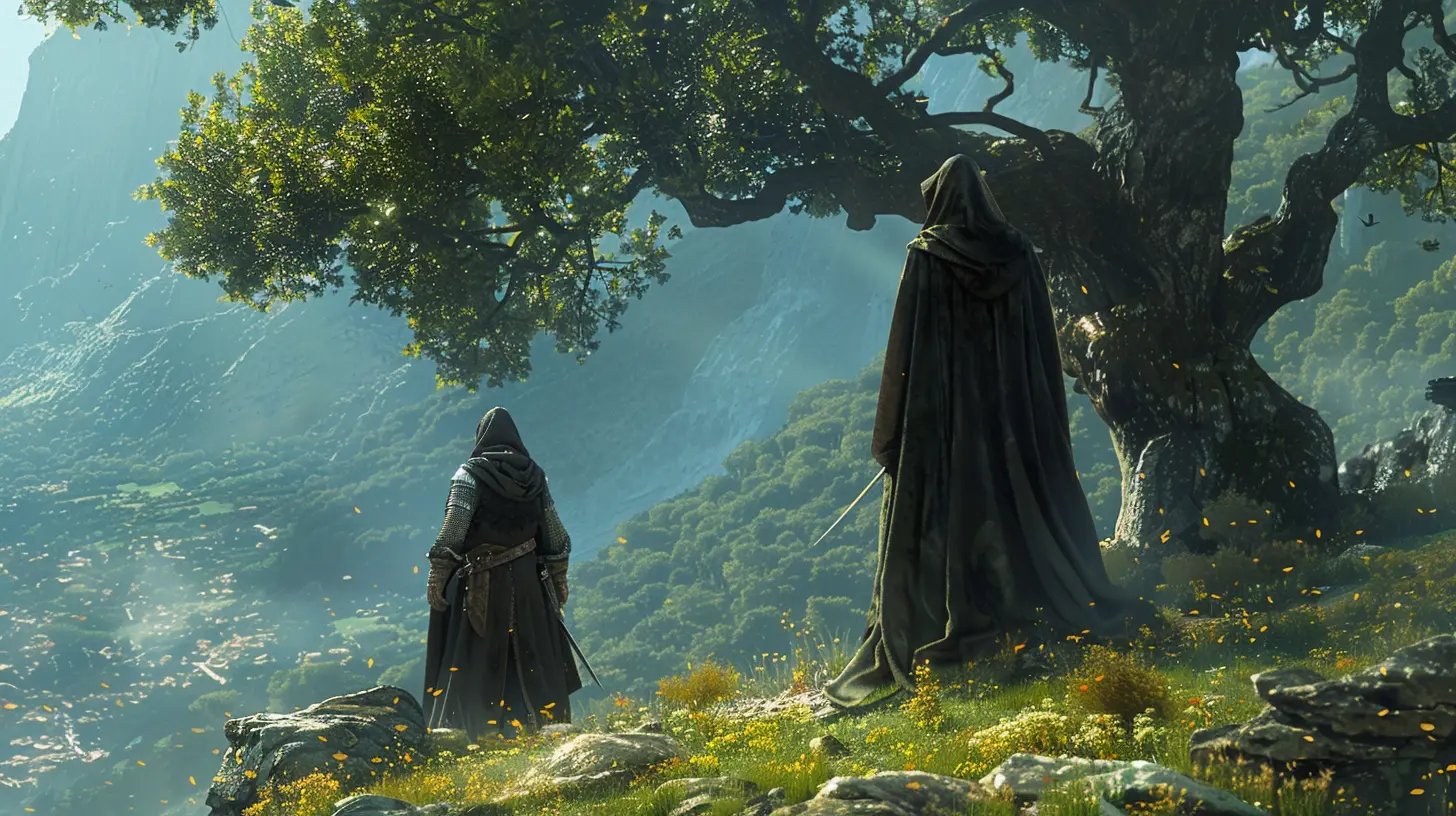
Choice and Consequence: The New “Combat”
In traditional RPGs, battles are where the action happens. But in non-combat RPGs, the action often takes place in dialogue trees and moral decisions. Basically, your conversations are your battles.Take Disco Elysium, for example. The game is practically one big branching conversation with your own subconscious. You’re not leveling up weapons—you’re leveling up different parts of your brain. And depending on how you build your character, the same situation can unfold in several totally unique ways.
You’re still strategizing, still problem-solving—but in a way that feels fresh and surprisingly intense.
Success Stories of Non-Combat RPGs
Disco Elysium
This award-winning RPG caught the gaming world off guard. There’s literally no combat in traditional terms. Instead, your stats and traits influence how you perceive the world and talk to characters. It's deep, weird, philosophical, and downright brilliant.What makes it special? The writing is top-tier—rich, poetic, and introspective. It challenges you not just in terms of gameplay, but intellectually and emotionally. It feels more like living inside a novel than playing a video game.
Citizen Sleeper
Set on a dystopian space station, Citizen Sleeper is a tabletop-inspired RPG where you play a synthetic worker navigating capitalism, survival, and identity. There’s hacking, trading, talking—but no weapons.Its turn-based cycles and dice mechanics offer a sense of urgency without violence. Plus, the game poses big questions about humanity, freedom, and purpose. It’s deep without being preachy—a tough balance many games can’t pull off.
Lake
In Lake, you play as a woman returning to her hometown to deliver mail and rediscover life away from the busy city. There’s zero combat. Instead, you explore, chat, reflect, and make life choices.It’s slow-paced, relaxing, and incredibly human. The emotional weight isn’t heavy-handed, but it sticks with you. In many ways, it proves that simple premises can lead to powerful experiences.
Genres Are Blending—And That’s a Good Thing
The rise of non-combat RPGs is also shaking up genre definitions. We’re seeing more hybrids—games that mix elements of RPGs with visual novels, adventure games, and even management sims.Ever played Spiritfarer? It's technically a "cozy management game," but it’s packed with emotionally rich stories and RPG-style choices. Or how about Heaven’s Vault, a narrative-driven archaeological adventure where you decode a dead language instead of fighting enemies?
We’re entering an age where gameplay doesn’t have to fit in neat boxes. And honestly, that’s beautiful.
Challenges in Creating Non-Combat RPGs
Designing a game without combat isn’t necessarily easier—it’s just different. Developers have to double down on writing quality, world-building, and systems that don’t rely on violence or action.Keeping players engaged without the adrenaline rush of combat means creating tension through dialogue, pacing, and plot twists. It’s more like directing a movie than running a battlefield.
And yes, there’s still a niche market for these experiences, but it’s growing. The demand is clear, and platforms like Steam and Game Pass are helping indie devs reach wider audiences.
The Future: Where Are We Headed?
With the success of recent titles, it’s clear this trend isn’t a fluke. Major studios are starting to pay attention. Even larger RPGs are giving players more choice in how they engage with the world—combat or otherwise.As AI, branching narratives, and dialogue systems evolve, we can expect even more complex and immersive non-combat RPGs. Games won't just react to what you do—they'll start to truly reflect who you are.
And let’s not forget—games are a form of art. Not all art needs to be loud, violent, or flashy. Sometimes, the most moving experiences are the quiet ones.
So, Should You Try One?
If you’ve never played a non-combat RPG, now’s the time. Whether you're tired of grinding levels or just want a change of pace, these games offer something truly unique.You’ll find yourself making choices that linger in your mind, uncovering stories that feel personal, and engaging with worlds that prioritize heart over hack-and-slash.
In a way, non-combat RPGs are helping us return to the roots of what made RPGs magical in the first place: stepping into someone else's shoes and living a different life—even if only for a few hours.
Final Thoughts
The rise of non-combat RPGs is more than just a gaming trend—it’s a quiet revolution. It’s proof that we don’t need violence to create stakes, and that emotional wisdom is just as valuable as strategic thinking. These games champion empathy, introspection, and meaningful connection.They’re not trying to be the loudest voice in the room. They’re trying to be the most honest. And in today’s fast-paced, chaos-filled world, that honesty hits harder than any critical strike ever could.
So put down your sword, pick up a conversation, and step into a new kind of adventure. You might be surprised by how powerful it feels to just… listen.
all images in this post were generated using AI tools
Category:
Role Playing GamesAuthor:

Stephanie Abbott
Discussion
rate this article
2 comments
Pierce Watson
Non-combat RPGs enrich storytelling, prioritizing player choice and exploration.
October 17, 2025 at 4:07 AM

Stephanie Abbott
Thank you! I completely agree—non-combat RPGs truly enhance the storytelling experience by allowing players to shape their narratives through meaningful choices and exploration.
Phoenix Pruitt
The emergence of non-combat RPGs marks a significant shift in the gaming landscape, prioritizing narrative depth, player choice, and exploration over traditional mechanics. This evolution highlights our desire for immersive storytelling, allowing players to engage with worlds in meaningful ways, fostering emotional connections that combat-centric games often overlook.
July 13, 2025 at 4:41 PM

Stephanie Abbott
Absolutely! Non-combat RPGs truly redefine our engagement with games, emphasizing rich narratives and player agency, which resonate deeply with our desire for meaningful experiences.

